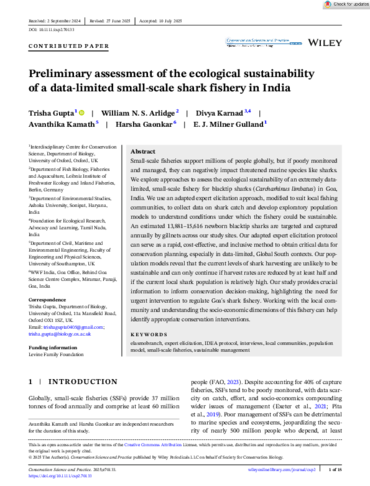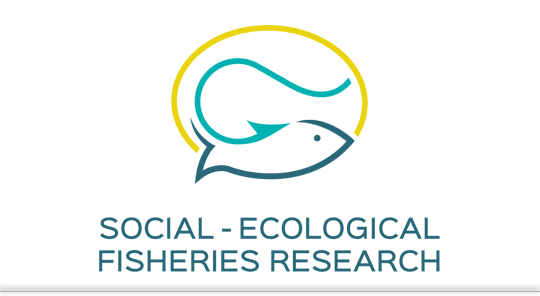Small-scale fisheries support millions of people globally, but if poorly monitored and managed, they can negatively impact threatened marine species like sharks. We explore approaches to assess the ecological sustainability of an extremely data-limited, small-scale fishery for blacktip sharks (Carcharhinus limbatus) in Goa, India. We use an adapted expert elicitation approach, modified to suit local fishing communities, to collect data on shark catch and develop exploratory population models to understand conditions under which the fishery could be sustainable. An estimated 13,881–15,616 newborn blacktip sharks are targeted and captured annually by gillnets across our study sites. Our adapted expert elicitation protocol can serve as a rapid, cost-effective, and inclusive method to obtain critical data for conservation planning, especially in data-limited, Global South contexts. Our population models reveal that the current levels of shark harvesting are unlikely to be sustainable and can only continue if harvest rates are reduced by at least half and if the current local shark population is relatively high. Our study provides crucial information to inform conservation decision-making, highlighting the need for urgent intervention to regulate Goa's shark fishery. Working with the local community and understanding the socio-economic dimensions of this fishery can help identify appropriate conservation interventions.
Preliminary assessment of the ecological sustainability of a data-limited small-scale shark fishery in India
Peer-reviewed

Gupta, T., Arlidge, W. N. S., Karnad, D., Kamath, A., Gaonkar, H., & Milner-Gulland, E. J. (2025). Preliminary assessment of the ecological sustainability of a data-limited small-scale shark fishery in India. Conservation Science and Practice, 7(1), e70133. https://doi.org/10.1111/csp2.70133
Published
: 2025
Appeared in
: Conservation Science and Practice
